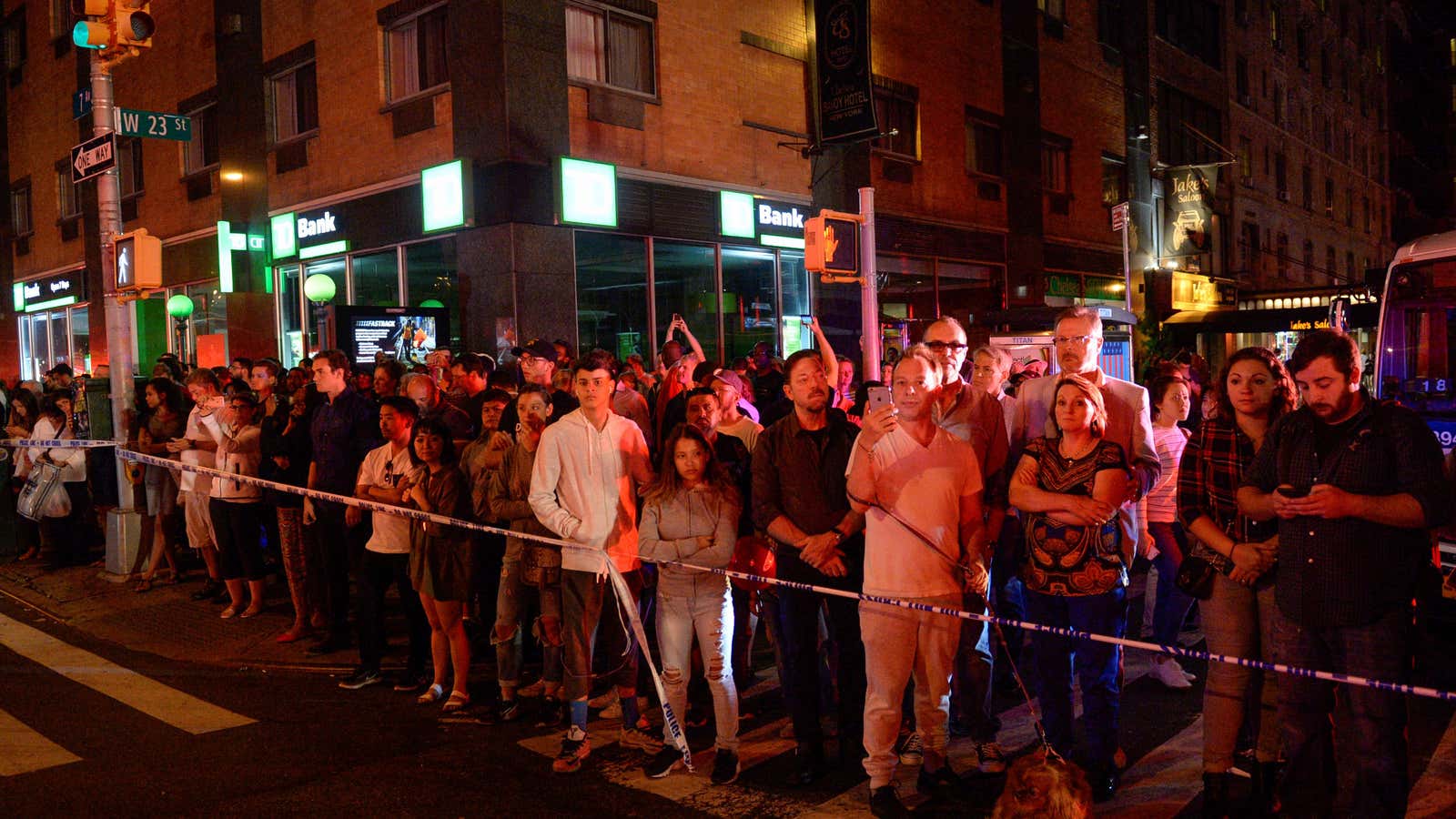As New York City scrambled to respond to an explosion in Manhattan’s Chelsea neighborhood on a Saturday night, so did Uber. It took a little more than an hour for Uber to announce it had suspended surge pricing in the area that evening.
“Soon after we saw reports of the explosion, we turned off surge in the affected area,” says Matt Wing, an Uber spokesman.
The decision marked a sharp contrast with how the company has handled surge pricing during disasters—natural and otherwise—in the past.
In October 2012, Uber enraged New Yorkers by hiking prices during Hurricane Sandy. It angered them again the following year when it charged as much as seven times normal fares during a heavy snowstorm. And in 2014, Uber drew criticism in Australia for turning on surge pricing for people fleeing a hostage situation in downtown Sydney (a decision it later reversed and apologized for).
In a deal struck with New York’s attorney general in July 2014, Uber agreed to cap surge during “emergencies and natural disasters.” In those scenarios, fares would be capped at the normal range of prices—minus the three highest ones—from the preceding 60 days. That policy was also extended to the rest of the US for “disasters and relevant states of emergency.”
Uber’s handling of the explosion in Chelsea this weekend shows how much it has grown up. By law, Uber didn’t have to suspend surge pricing in the neighborhood. What happened wasn’t a natural disaster, and no one declared a state of emergency. Uber could have allowed prices to rise in line with demand and been completely within its legal rights.
But Uber’s calculus is different now. The company that was once obsessed with demand curves and economic efficiency has recently tried to soften its image. It’s transitioning from being a black car service for the upper middle class and wealthy—”everyone’s private driver”—to a pseudo-public good. It’s doubled-down on carpooling, begun partnering with local transit agencies, and rebranded with the egalitarian missive ”transportation as reliable as running water.”
The Uber of today can no longer afford to play the role of brash startup at all times. It has to also prove it can be a reasonable corporate citizen. Lifting surge during the Chelsea bombing was a good way to do that.
